
Marginal growth in core sector industries; Cotton sowing pushes up Kharif sowing acreage; Forex reserves hit life-time highs
By Abin Daya Change is an unavoidable part of life - and of doing business. One of the biggest changes to the way we do business happened last Friday, with the rolling out of the GST. Yes, there will be disruptions in the short term and the cost of compliance will go up. Also, many small businesses will lose the tax arbitrage that enabled them to price below that of the larger companies. It will also increase the financing cost of business, particularly for those engaged in foreign trade. Speaking of financing, even that is not going to be easy. While credit growth is down because of low credit demand driven by the leveraged position of corporates combined with muted demand, even where businesses ...

UN downgrades Indias GDP growth forecast to 7.3% in 2017
The Dollar Business Bureau The United Nations (UN) has revised India’s GDP growth forecast downward for 2017 but projected an increase in 2018 predicting 7.9% economic growth as it warned that the banking sectors’ stressed balance sheets will have adverse impact on investments in the short-term. The UN World Economic Situation and Prospects (UNWESP) in its mid-2017 report, launched on Tuesday, said that India is predicted to achieve a growth of 7.3% this year, downward from its earlier forecast of 7.7%, which it made when the report was launched in January. However, the revised report forecast that the country will achieve a notable 7.9% GDP growth next year, from its earlier estimates of 7.6% made in the January report. The report, however, cautioned that stressed balance sheets of India’s banking sector, which has ...

IMF Chief impressed with GST and bankruptcy code reforms
The Dollar Business Bureau Christine Lagarde, the current IMF chief appreciated the GST policy, labelling it as an "act of courage" while admitting that she expected positive outcomes from the policy. Lagarde made the observations while speaking with reporters during the side-lines of the spring meeting of the IMF and the World Bank. The Indian GST considered the biggest of its kind in the world would subsume many indirect taxes to arrive at a centralized taxation structure helping businesses as well as bring down end-product costs. GST is anticipated to add nearly 2% to India GDP by bringing informal economy into market-calculations as well as easing the burden of tax evasion. Lagarde averred that tax reforms such as GST are positive and that ...
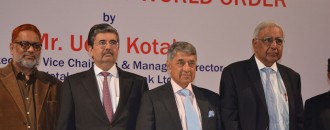
PSU-Banking needs accountability: Uday Kotak
Sairaj Iyer Uday Kotak, Executive Vice Chairman and MD of Kotak Mahindra Bank, believes that the premise for rejuvenation of India’s economy (post demonetization) and the overall financial atmosphere is to replenish the confidence of the public in banks. Especially since we see receding confidence in recent times due to an uncertain global environment. But to do so there is a need to improve upon governance standards, specifically in PSU banks. At a talk show organised by the Indian Merchants Chamber, Kotak said that the PSU banking sector is an area that needs immediate attention. Referring to the rising NPAs, and infusion of tax-money into recapitalization of failing PSU banks, he said, “70% of bank accounts are with the PSUs, and I want ...
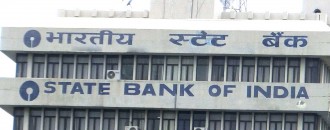
Cabinet clears decks for merger of SBI and 5 associate banks
PTI Seeking to create a global-sized bank, the Cabinet today gave the go-ahead to the merger plan of SBI and its five associates, a step aimed at strengthening the banking sector through consolidation of public banks. However, no decision was taken on the proposal to also merge the Bharatiya Mahila Bank with SBI.The merger is likely to result in recurring savings, estimated at more than Rs 1,000 crore in the first year, through a combination of enhanced operational efficiency and reduced cost of funds, read an official statement."The Cabinet had earlier in-principle cleared the (merger) proposal. It had gone to the boards of various banks which have granted the approvals. The recommendations of the boards were considered today and the Cabinet cleared ...
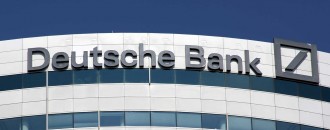
Deutsche Bank agree to $7.2 bn settlement with US over risky mortgages
The Dollar Business Bureau Deutsche Bank agreed to a $7.2 billion settlement with the US Department of Justice over its sale of toxic mortgage-backed securities prior to the 2008 financial crisis. The department said, Deutsche's nod represents the largest such resolution for its conduct in misleading investors in residential mortgage-backed securities. This settlement is also higher than the Citigroup’s $7 billion paid to federal and state authorities in 2014. "Deutsche Bank did not merely mislead investors: it contributed directly to an international financial crisis," Attorney General Loretta Lynch said. Deutsche's chief executive John Cryan termed the bank's conduct between 2005 and 2007 as "unacceptable." “The bank had exited many of the underlying activities and improved standards,” he said. The Frankfurt-based bank had reached the settlement ...
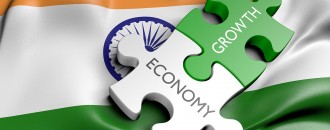
World Bank drops Indias growth to 7%, after demonetisation
The Dollar Business Bureau The World Bank on Wednesday lowered down the growth estimates of India for fiscal 2016-17 to a ‘still robust’ 7% from its earlier estimate of 7.6%, as a consequence of demonetisation. However, it asserted that the country would revive its momentum in the coming years with growth between 7.6% and 7.8%. “The immediate move by the government to withdraw a huge volume of currency in circulation and subsequently replacing with the new notes in November led to slowing of growth in 2016,” said the latest report ‘Global Economic Prospects’ by World Bank. The Bank, in its first report post-demonetisation, said, “Indian growth is estimated to have decelerated to a still robust 7% (in fiscal 2017 ending on March 31, 2017), ...
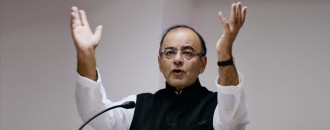
GST, banks revival Govts top priorities: Jaitley
The Dollar Business Bureau Finance Minister Arun Jaitley on Wednesday said that the government will continue with the tax reforms, repair the banking structure and to get moving stalled infrastructure projects to drive growth. However, it is not still ready to sell off its state-run banks. On the top of economic policy priorities, Jaitley said that he was firm on sticking to a ‘very stiff’ timetable that foresees passing crucial enabling legislations for the new goods and services tax (GST) this season. He said that once implemented, the new GST would have a ‘transformational’ effect by developing a common marketplace for the first time in the country, whereas also serving as a transfer mechanism that would support the poorer federal states. The aim of ...


